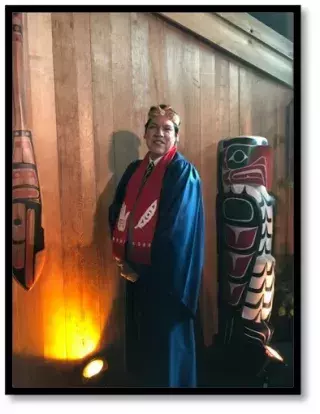Gerald Bent
B.A. Anthropology, B.Ed. as Second Degree-(PDP), Certificate in Correctional Studies, Post Baccalaureate Diploma in Criminology (SFU), MA in First Nations Studies (UNBC)-Nlaka'pamux Justice Systems
Yeatekshenwenwen, Gerald Han sqwe’ęst. Good day. My name is Gerald.
I identify as being a Two-Spirit, Status Indian from the Lytton Indian Band, which is located in the traditional territory of the Nlaka’pamux Nation. I would like to acknowledge that KPU is located on the traditional territory of the hosting Indigenous Nations.
For approximately 18 years, as an Indigenous student, educator, Two-Spirit, and criminal justice worker, I have been working with many Indigenous communities and organizations, including Elders. I have mentored and supported several practicum placement students, including students from KPU Criminology. During my time at KPU, I would like to develop and create new Indigenous themed courses and programs with KPU Criminology and Indigenous Studies.
For the past 13 years I have worked at the Correctional Service of Canada (CSC) as a Correctional Programs Officer. I have worked at a medium security level institution and am currently working at a community parole office. For my graduate studies I am researching and writing about my Nations Indigenous Restorative Justice (RJ) program. I am also interviewing my Elders so they can share their Indigenous knowledge of Xitl’ix, which is our traditional court system. I look forward to sharing some teachings with you.
All My Relations,
Gerald
Courses taught
- CRIM 4240 Indigenous Peoples and Justice
- INDG 1100 Introduction to Indigenous Studies
Areas of Interest
Storywork Methodology, decolonization, Indigenous corrections and interventions, Two-Spirit peoples, Indigenous Restorative Justice (RJ), Xitl’ix (Nlaka’pamux Traditional Court), Indigenous oral history, Elder’s teachings, Indigenous theory, over-incarceration of Indigenous men, women and Two-Spirit people, traditional healing practices, Restorative Justice (RJ) programs and services, Indigenous Social History (ISH), reconciliation, and traditional knowledge.